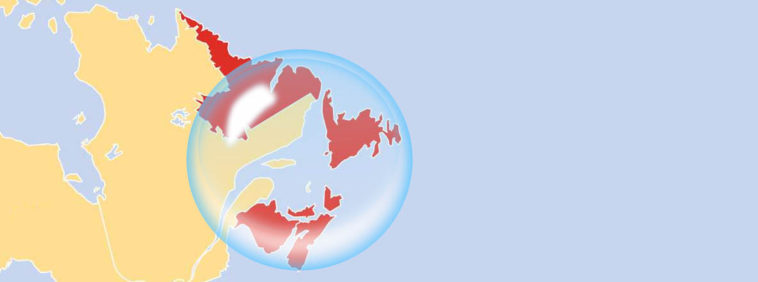Starting Friday, July 3, if people live in another Atlantic Canadian province and want to visit Nova Scotia, they will need to show proof of residency to enter the province.
Every adult will need to show either a drivers’ licence, government identification card, health card, or a utility bill or bank statement with a valid Atlantic Canadian address to provincial officials at airports, ferries or the land border when they arrive in the province. No self-declaration form will be required.
If people can prove with these documents that their permanent home is in Atlantic Canada, they will not have to self-isolate for 14 days when coming into Nova Scotia.
“Businesses and communities are looking forward to welcoming Atlantic Canadian visitors,” said Premier Stephen McNeil. “We’ve worked hard to get to the point where we can welcome our neighbours safely and it’s important for everyone to respect the public health guidelines.”
It is important to remember that Nova Scotia’s borders are restricted, not closed. People from outside Atlantic Canada are welcome in the province. They must self-isolate for 14 days when they arrive. If they have already self-isolated in another Atlantic Canadian province, they may enter Nova Scotia without self-isolating again.
“I know many people are still nervous about this virus. Our visitors may be, too,” said Dr. Robert Strang, chief medical officer of health. “We can make their visits a safe experience for everyone by being patient and kind, by practising good hand hygiene, distancing and by wearing a mask when you can’t stay six feet apart.”
Nova Scotians who are planning to visit another Atlantic province should check before they leave to ensure they have the information documentation required in that province.
Quick Facts:
— testing numbers are updated daily at https://novascotia.ca/coronavirus
— a state of emergency was declared under the Emergency Management Act on March 22 and extended to July 12
Additional Resources:
Prince Edward Island: https://www.princeedwardisland.ca/en/information/health-and-wellness/atlantic-provinces-travel-bubble
New Brunswick: http://www.gnb.ca/coronavirus
Newfoundland and Labrador: https://www.gov.nl.ca/covid-19/
Government of Canada: https://canada.ca/coronavirus
Government of Canada information line 1-833-784-4397 (toll-free)
The Mental Health Provincial Crisis Line is available 24/7 to anyone experiencing a mental health or addictions crisis, or someone concerned about them, by calling 1-888-429-8167 (toll-free)
Kids Help Phone is available 24/7 by calling 1-800-668-6868 (toll-free)
For help or information about domestic violence 24/7, call 1-855-225-0220 (toll-free)
Source: Release

